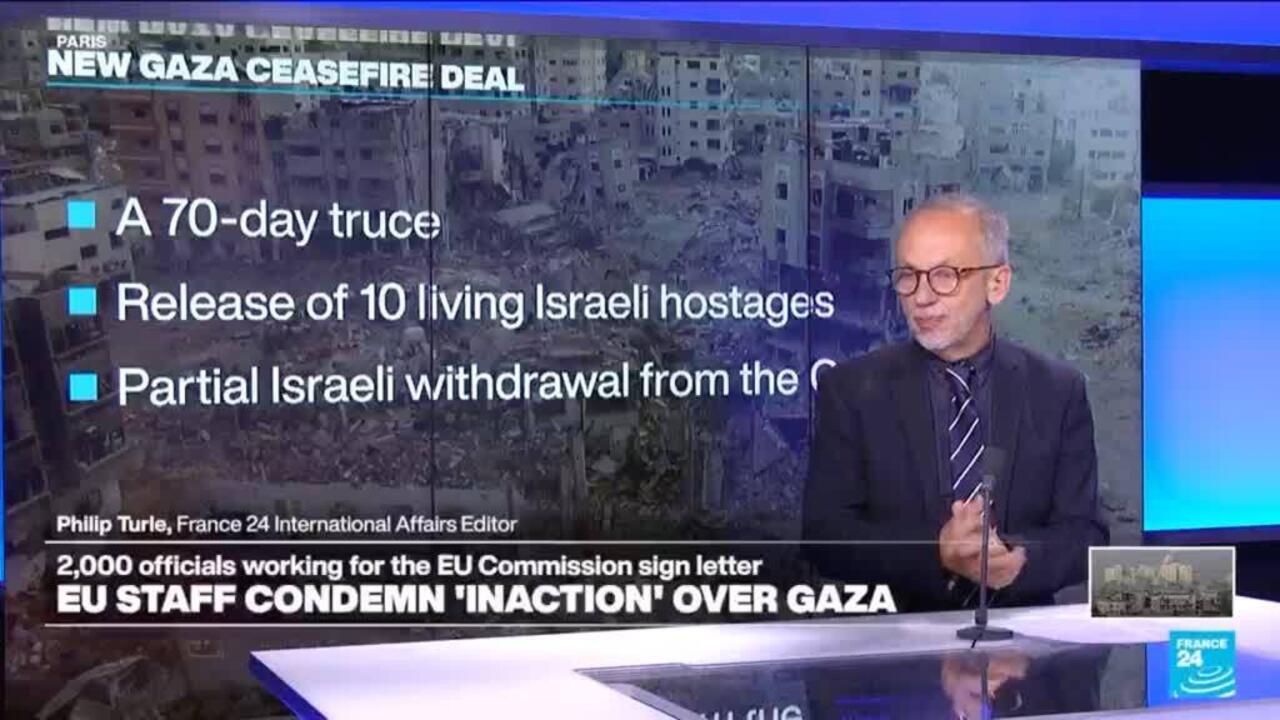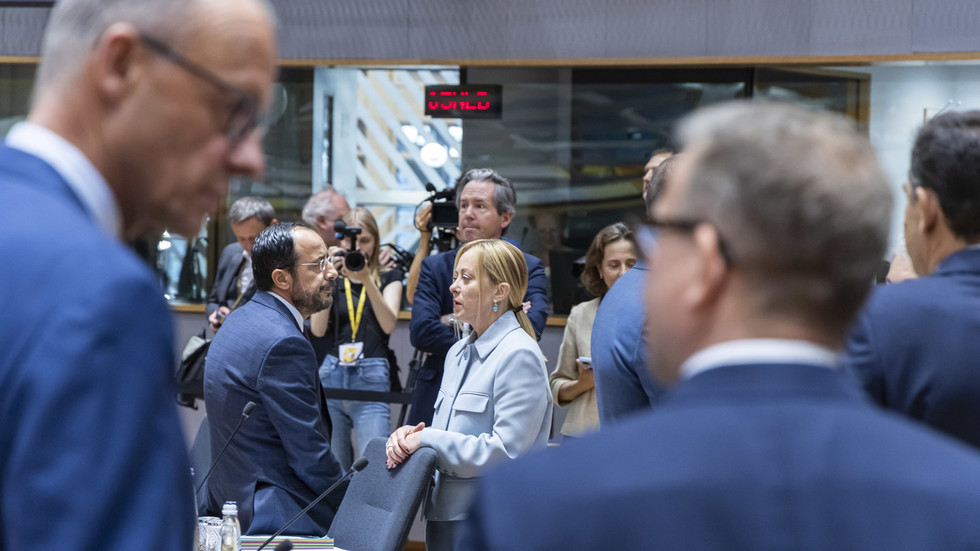A US plan for Gaza seen by Reuters on Friday proposes a 60-day ceasefire and the release of 28 Israeli hostages alive and dead in the first week, in exchange for the release of 1,236 Palestinian prisoners and the remains of 180 dead Palestinians.
The document, which says the plan is guaranteed by US President Donald Trump and mediators Egypt and Qatar, includes sending humanitarian aid to Gaza as soon as Hamas signs off on the ceasefire agreement.
The aid will be delivered by the United Nations, the Red Crescent and other agreed channels. According to text cited by the Times of Israel, the proposal states that whatever agreement is reached on aid to the civilian population will be respected throughout the course of the agreement.
Read moreWeaponizing aid? International community blasts Israel-backed Gaza aid scheme
On Thursday, the White House said Israel had agreed to the US ceasefire proposal.
Israeli media said Prime Minister Benjamin Netanyahu told the families of hostages held in Gaza that Israel had accepted the deal presented by President Trump’s Middle East envoy Steve Witkoff.
The Palestinian militant group Hamas told Reuters it was reviewing the plan and would respond on Friday or Saturday.
Prisoner swap
Ten living Israeli hostages and 18 dead Israeli hostages will be released over the course of the first week of the ceasefire, the proposal said. The US plan provides for Hamas to release the last 30 of the 58 remaining Israeli hostages once a permanent ceasefire is in place. Israel will also cease all military operations in Gaza as soon as the truce takes effect, it shows.
The Israeli army will also redeploy its troops in stages. Deep differences between Hamas and Israel have stymied previous attempts to restore a ceasefire that broke down in March after Israel renewed its military assault on Gaza.
Netanyahu has refused to end the war until all the hostages are released and Hamas is either destroyed or disarmed and sent into exile. He has said Israel will control Gaza indefinitely and facilitate what he refers to as the voluntary emigration of much of its population.
Palestinians and most of the international community have rejected plans to resettle Gaza’s population. Using force, or the threat of force, to displace a people living under military occupation is a war crime banned under the 1949 Geneva Conventions.
Watch moreHamas releases Israeli-American hostage in goodwill gesture toward Trump administration
Hamas has said it will only release the remaining hostages – its only bargaining chip – in return for more Palestinian prisoners, a lasting ceasefire and a full Israeli withdrawal. It has offered to give up power to a committee of politically independent Palestinians that could oversee reconstruction.
Israel launched its campaign in Gaza in response to the Hamas attack in its south on October 7, 2023, that killed some 1,200 people and saw 251 Israelis taken hostage into Gaza, according to Israeli tallies.
The subsequent Israeli military campaign has killed more than 54,000 Palestinians, Gaza health officials say, and left the enclave in ruins.
Towards a permanent ceasefire
Israel has come under increasing international pressure, with many European countries usually reluctant to criticise it openly demanding an end to the war and a major relief effort.
Witkoff told reporters on Wednesday that Washington was close to "sending out a new term sheet" about a ceasefire by the two sides in the conflict.
"I have some very good feelings about getting to a long-term resolution, temporary ceasefire and a long-term resolution, a peaceful resolution, of that conflict," Witkoff said at the time.
The 60-day ceasefire, according to the plan, may be extended if negotiations for a permanent ceasefire are not concluded within the set period.
The plan details that the mediators will guarantee that the ceasefire will continue for the 60-day period and for any agreed upon extension, as well as guaranteeing that serious discussions will be held on the necessary agreements for a permanent ceasefire.
Senior Hamas official Sami Abu Zuhri said on Thursday the terms of the proposal echoed Israel’s position and did not contain commitments to end the war, withdraw Israeli troops or admit aid as Hamas has demanded.
The Gaza Humanitarian Foundation, a private group backed by the United States and endorsed by Israel, expanded its aid distribution to a third site in Gaza on Thursday.
What is the Gaza Humanitarian Foundation, the organisation whose head resigned?
To display this content from YouTube, you must enable advertisement tracking and audience measurement.
One of your browser extensions seems to be blocking the video player from loading. To watch this content, you may need to disable it on this site.

04:51
Heavily criticised by the United Nations and other aid groups as inadequate and flawed, the group began its operation this week in Gaza, where the UN has said 2 million people are at risk of famine after Israel’s 11-week blockade on aid entering the enclave.
The launch was marred by tumultuous scenes on Tuesday as thousands of Palestinians rushed to distribution points and forced private security contractors to retreat.
The chaotic start to the operation has raised international pressure on Israel to get more food in and halt the fighting in Gaza. GHF has so far supplied about 1.8 million meals and plans to open more sites in coming weeks.
(FRANCE 24 with Reuters and AP)











 English (US) ·
English (US) ·